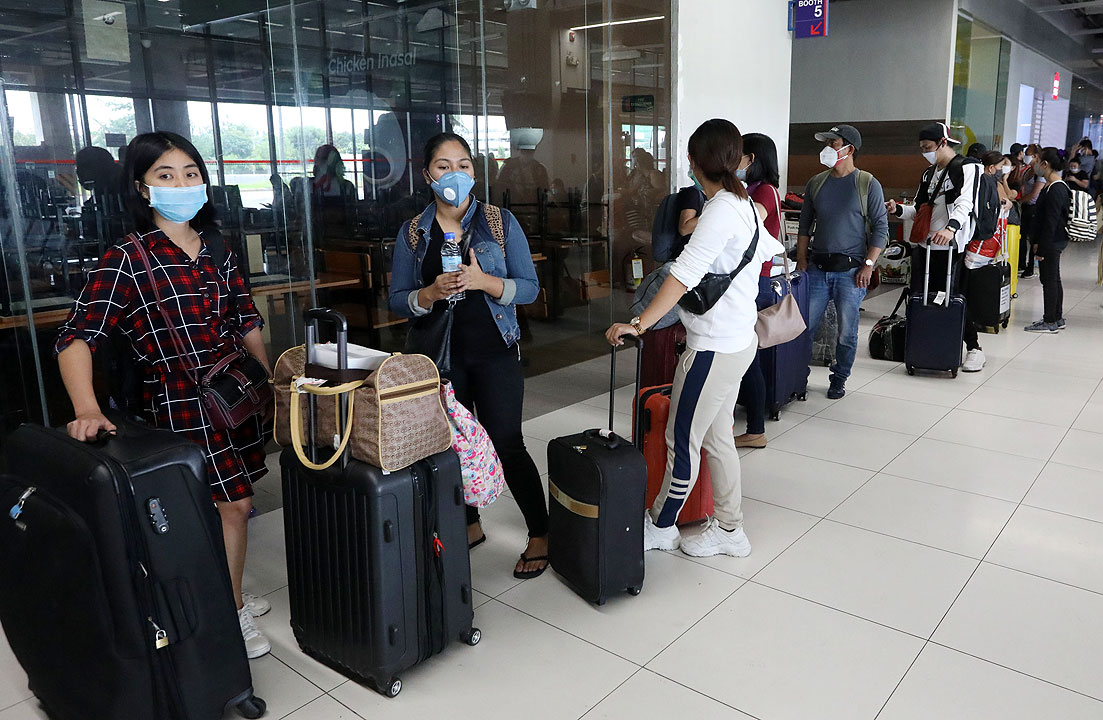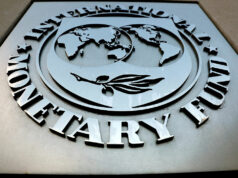Number of OFWs fell nearly a fifth to 1.8M in 2020

By Abigail Marie P. Yraola, Researcher
THE NUMBER of registered overseas Filipino workers (OFW) declined by nearly a fifth year on year in 2020 amid the coronavirus disease 2019 (COVID-19) pandemic, data from the Philippine Statistics Authority (PSA) showed.
The ranks of OFWs dropped by 18.6% to 1.77 million in 2020 from 2.18 million in 2019, the latest PSA’s Survey on Overseas Filipinos showed.
In 2020, there were around 1.71 million overseas contract workers (OCWs), accounting for 96% of the total. However, this was a 19% drop from the 2.11 million OCWs in 2019.
Other Filipinos who worked abroad without working visa or work permits such as tourist, visitor, student, medical, and other types of non-immigrant visas but were presently employed and working full time in other countries accounted for 3.6% of the total. The population of these workers slipped by 7.4% to 63,810 in 2020 from 68,940 in 2019.
Economists largely blamed this to the pandemic, as many countries implemented strict lockdowns and closed their borders in an effort to contain the spread of COVID-19 in 2020. As a result, many businesses shut down and workers lost their jobs.
UnionBank of the Philippines, Inc. Chief Economist Ruben Carlo O. Asuncion said the pandemic is the only reason for this massive decline of Filipino workers working abroad.
In an e-mail interview, he said the Department of Foreign Affairs (DFA) and the Department of Labor and Employment (DoLE) acknowledged that many OFWs were repatriated after losing their jobs and had nowhere else to go due to the pandemic.
More than 800,000 OFWs returned to the country since the onset of the pandemic, DoLE said last year.
“The COVID-19 pandemic is a global phenomenon adversely affecting both rich and poor economies worldwide, with world GDP (gross domestic product) declining by 3.9% in 2020,” said University of the Philippines School of Labor and Industrial Relations Professor Emily Christi A. Cabegin in an e-mail interview.
“To contain the contagion, countries have imposed restrictions on domestic and cross-border mobility that led to the disruption of global supply chains and closures of businesses, with severe impacts on the tourism and travel industry,” she added.
The PSA data also showed more women worked abroad than men. Female OFWs accounted for 59.6% of the total in 2020, while 40.4% were men.
Around 22.4% of OFWs were aged 30 to 34, while 20% were aged 35 to 39 and 19% were aged 45 and above.
In 2020, nearly half or 47% of OFWs were employed in “elementary occupations,” higher than the 39% share in 2019. These include household service workers, cleaning and kitchen staff, and others involved in manual labor.
Workers in services and sales accounted for 14.4%, lower than the 17.6% share in 2019, as many restaurants and shops were shuttered during the lockdowns. OFWs working as plant and machine operators and assemblers accounted for 11.5%, slightly lower from the 12.3% share in 2019.
Around 18% or 185 in every 1,000 OFWs came from the Calabarzon Region. OFWs from Central Luzon accounted for 11.8% of the total, followed by Western Visayas with 9.2%, and the National Capital Region with 8.4%.
Majority or 83.6% of the OFWs worked in Asian countries such as Saudi Arabia (26.6%), United Arab Emirates (14.6%) and Kuwait (6.4%). Other destinations were Europe (with 6.7% share), North and South America (5.2%), and Australia (3.4%).
The decline in OFWs resulted in a large decrease in remittances as well.
An OFW sent an average of P86,810 in 2020, down by 18.6% from P106,618 average in 2019.
Total remittances from OFWs reached P134.77 billion, falling by 35.9% from P210.40 billion in 2019. These comprised of cash sent home with P113.08 billion from P157.04 billion, cash brought home (P18.98 billion from P46.20 billion), and in kind (P2.71 billion from P7.17 billion).
Banks are the most preferred mode of sending cash remittances. Results of the survey show that in 2020, about 51% were sent by OFWs through banks, and 45.9% were sent through money transfer services.
“The Philippines is a major global labor-sending country and is the fourth-largest remittance recipient in the world. The economic crisis brought about by the COVID-19 pandemic resulted in massive loss of employment of OCWs in their host countries, many of whom have been forced to repatriate to the Philippines,” said Ms. Cabegin.
The pandemic brought the country’s cash remittances down by 0.8% to $29.90 billion in 2020, the first annual contraction in more than two decades since the 18.3% contraction in 1999, central bank data showed.
With tourism and travel industry among the hardest hit by the pandemic, many sea-based OFWs lost their jobs and many others with labor permits could not be immediately deployed.
“The COVID-19 pandemic rendered many OFWs jobless…The decline in actual remittances sent was also because of the recession brought by the 2020 lockdowns and movement restrictions,” Mr. Asuncion said.
The reference period for the survey was in April to September 2019 and April to September 2020 while estimates were based on the 2015-based Population Projections.




